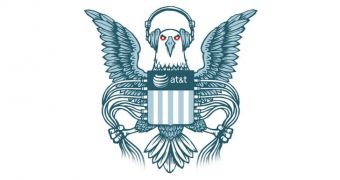PRISM isn’t actually collecting everything, the NSA says, instead, it’s targeting suspect email addresses and phone numbers.
According to the agency’s top lawyers who participated in a public hearing in front of the Privacy and Civil Liberties Oversight Board, the intelligence agency didn’t actually want to collect all data in bulk, but rather it was tailoring the program in order to track or uncover suspects involved in terrorist activities and other threats to national security.
“We figure out what we want and we get that specifically, that’s why it’s targeted collection rather than bulk collection,” said Robert Litt, general counsel at the office of the Director of National Intelligence.
He has also stated that the agency doesn’t simply have keywords set in stone to scan emails and other messages handled by the Internet giants.
PRISM was one of the first revealed programs involving the NSA and based on Edward Snowden’s files. Media reports explained that PRISM focused on collecting data straight from a series of high-profile tech companies, such as Google, Yahoo, Facebook and Microsoft, to name just a few.
Now, many months later, NSA officials step out and claim that PRISM isn’t the bulk-collection program it was believed to be, but rather a calculated, target-oriented one that seeks specific data which it got through court orders.
Despite the fact that PRISM affects a lot more people than the phone call metadata collection program, it got very little attention from the American media after the first few weeks, which chose to focus on the latter instead, since it involved a lot of the country’s citizens.
The National Security Agency and the rest of the intelligence community has been trying to calm everyone in the past months, claiming that things weren’t as bad as they seemed to be and that the programs were actually under thorough oversight that made sure to keep the agency in line.
While this may have been the NSA’s official story, the Congressional oversight committee for the intelligence community admitted to not being in the know about a lot of the NSA’s activities, while the Pentagon watchdog has recently said that it had absolutely no idea about the agency’s mass data collection.
In the same hearing, the NSA’s top lawyers said that despite formal denials coming from the tech giants named in the PRISM files, the companies did in fact know about the project. What they did not know, they said, was the name attached to the program (PRISM), but that didn’t change the fact that they were handing over the requested information.

 14 DAY TRIAL //
14 DAY TRIAL //